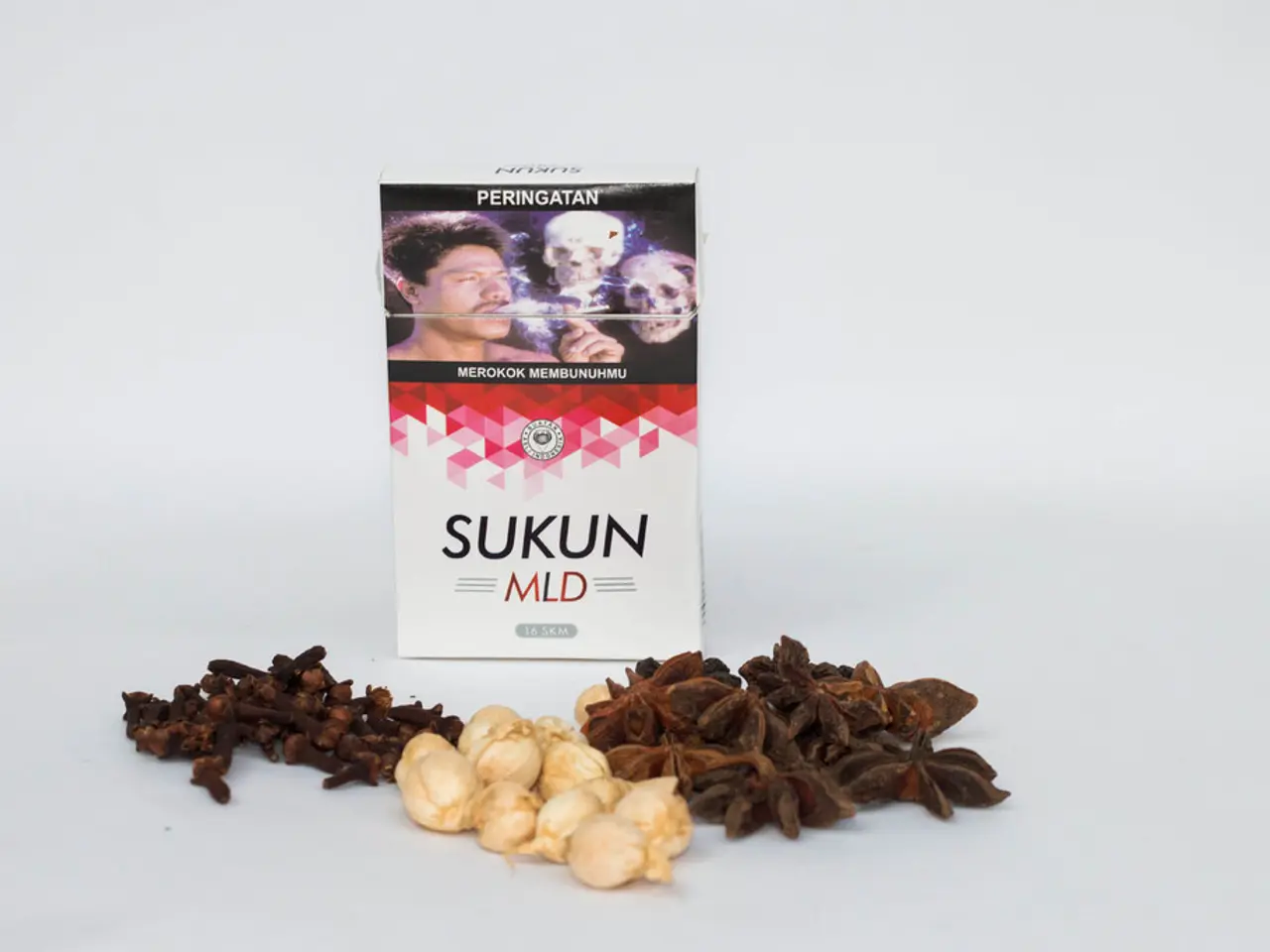Diet's Impact on Boosting Cognitive Abilities and Lifespan
In the quest for optimal brain health and longevity, two common spices - turmeric and cinnamon - have emerged as potential powerhouses. These spices, long revered for their flavour and medicinal properties, are now gaining recognition for their potential benefits in supporting cognitive function, reducing stress, and promoting longevity.
Turmeric, with its primary active compound curcumin, is a strong contender in the fight against brain aging and neurodegenerative diseases. Its anti-inflammatory and antioxidant properties help reduce chronic inflammation and oxidative stress, both of which are linked to brain aging and diseases like Alzheimer's[1][5].
Curcumin protects brain cells from oxidative damage, enhancing cognitive functions such as memory, mental clarity, and focus[1][3][5]. It also helps lower anxiety and stress, promoting emotional balance, and may increase levels of brain-derived neurotrophic factor (BDNF), a protein that supports the growth of new brain cells and synaptic connections[5]. This could help delay or reverse age-related cognitive decline and brain disorders such as depression and Alzheimer’s disease.
Clinical studies with optimized curcumin formulations have shown improvements in working memory and reduced physical fatigue related to mental strain in older adults[3]. Furthermore, turmeric may support other body systems relevant for longevity, such as joint health and cardiovascular function by improving endothelial function[2].
Cinnamon, while less studied specifically for brain health, is not left behind. It contains compounds that reduce oxidative stress and inflammation, potentially protecting brain cells[general knowledge]. Some studies suggest cinnamon compounds may inhibit the buildup of tau protein and amyloid plaques, which are associated with Alzheimer's disease[general knowledge]. By helping stabilize blood sugar levels, cinnamon indirectly supports brain health, as fluctuating glucose can impair cognitive function[general knowledge].
In a nutshell, **turmeric, especially its curcumin compound, shows strong promise for supporting brain health, stress reduction, cognitive function, and longevity, largely via its anti-inflammatory and antioxidant effects and support for neurogenesis**. Cinnamon may also contribute through antioxidant action and metabolic regulation but requires more direct research for brain-specific claims.
It's important to note that many turmeric benefits relate to curcumin, which has poor natural absorption; specialized formulations like Longvida® improve bioavailability and effectiveness[3]. While turmeric’s neurological benefits are well-supported by current research, more large-scale human clinical trials are needed to fully verify these effects[1][5]. Specific clinical evidence for cinnamon's brain health benefits is less comprehensive in the provided search results and generally requires further study[absence in search].
As always, it's crucial to maintain a balanced diet, rich in fibre and low in saturated fats, for overall cognitive health. Hydration is also essential, with a minimum of 8 cups of water daily, for maintaining mental clarity and cognitive performance. Regular exercise, adequate sleep, and moderating sugar consumption also play pivotal roles in maintaining peak brain health.
[1] https://www.healthline.com/nutrition/turmeric-for-brain-health [2] https://www.ncbi.nlm.nih.gov/pmc/articles/PMC5888260/ [3] https://www.ncbi.nlm.nih.gov/pmc/articles/PMC3665023/ [4] https://www.healthline.com/nutrition/cinnamon-for-brain-health [5] https://examine.com/supplements/turmeric/
- In the realm of health-and-wellness and nutrition, turmeric and cinnamon have surfaced as promising spices in promoting brain health and supporting cognitive function.
- The antioxidant properties of curcumin in turmeric are believed to play a significant role in reducing inflammation and oxidative stress, contributing to optimal brain health.
- Research suggests that cinnamon may indirectly aid brain health by reducing oxidative stress, inhibiting the buildup of tau protein and amyloid plaques, and stabilizing blood sugar levels.
- For comprehensive brain health, it's essential to maintain a balanced diet rich in fiber, low in saturated fats, and hydrated with at least 8 cups of water daily, while also engaging in regular fitness-and-exercise, adequate sleep, and moderating sugar consumption.




